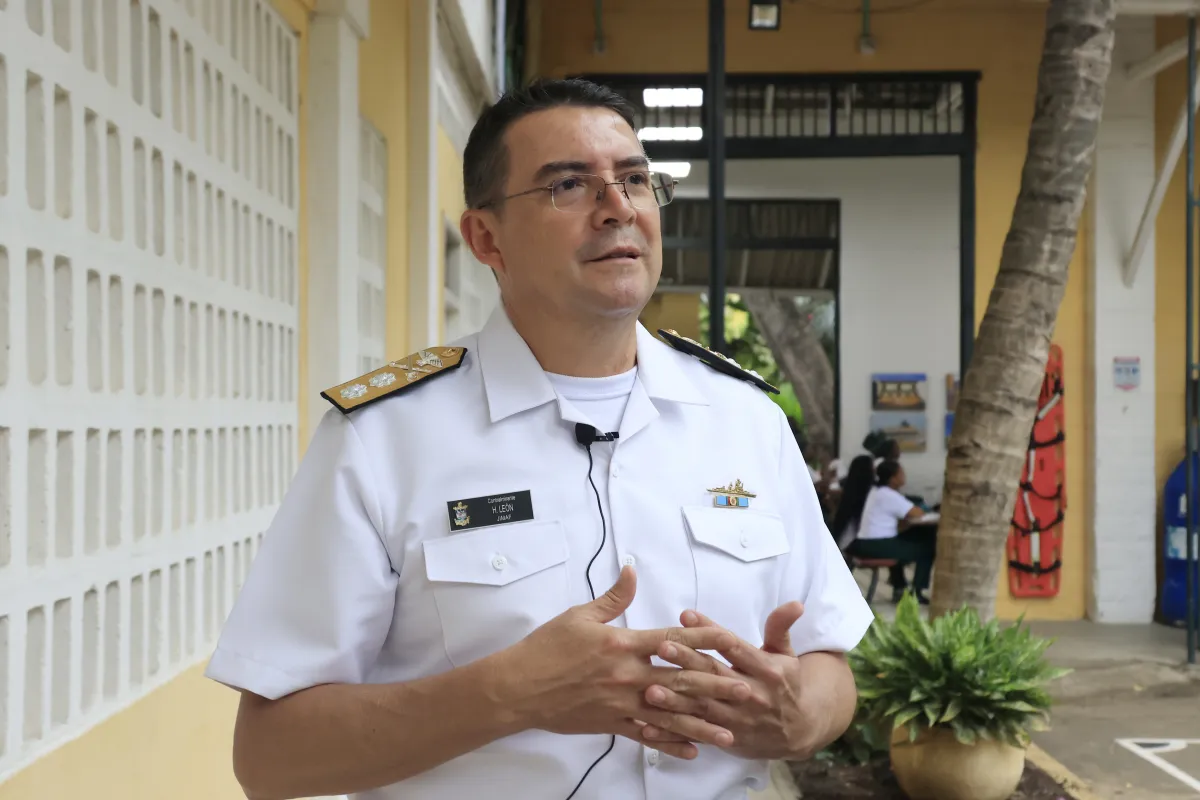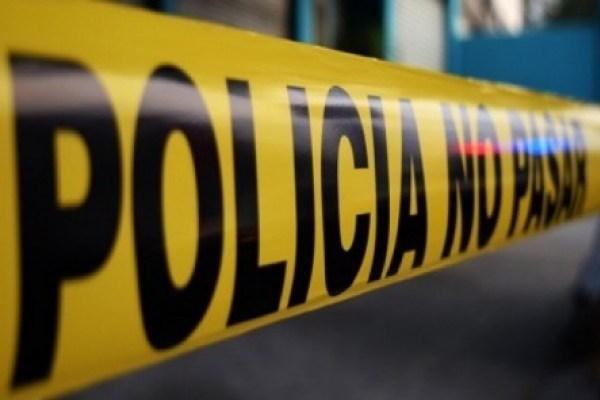International
Investigation of the San José galleon, the great scientific challenge that Colombia embarks on

Colombia embarked on one of the greatest scientific challenges in its history: the investigation of the Spanish galleon San José, sunk by English privateers off the coast of Cartagena de Indias in the 18th century and found in 2015 at a depth of more than 600 meters.
The authorities began this work with great enthusiasm, for which different institutions were articulated such as the Ministry of Cultures, the Navy and the Colombian Institute of Anthropology and History (Icanh).
“Associated with archaeology, culture and heritage, it is the first time we have made such a great effort and in this Government, particularly, to believe in the institutions and in the ability we have to do something to show the world. It is a special challenge,” the head of Maritime and River Interests of the Colombian Navy, Rear Admiral Hermann León, told EFE.
That institution put at the service of this purpose the ship ARC Caribe and all its technological capacity to “be able to go down to 600 meters deep” to observe the wreck, a task to which only Colombian specialists will dedicate themselves.
For the investigation, which will be of six phases, the Government of Colombia has also already made a decision that will make its work easier: to declare as ‘Protected Archaeological Area of the Nation’ the area where the galleon is, whose coordinates are secret to prevent treasure hunters from reaching there that can steal what was in the San José.
“This is the first protected archaeological area of Colombia in the underwater space, it is the first in America at this depth. Colombia is doing a research project as it has not been seen before under the universal principles of heritage protection and they must be assured that this is a scientific project to bring the best of that knowledge to Colombians,” the Rear Admiral added.
The San José, built in 1698 in Guipúzcoa (Spain) and belonging to the Spanish Navy, was sunk on June 8, 1708 during an attack by a fleet of English privateers when it was on its way to Cartagena de Indias loaded, according to chronicles of the time, with about 11 million coins of eight shields in gold and silver that it had collected at the Portobelo fair (Panama).
Spain, based on the rules of the United Nations Educational, Scientific and Cultural Organization (UNESCO), claims the ownership of the galleon for being “a state ship,” with its flag.
The Colombian Government, which declared the San José “asset of submerged cultural interest,” does not rule out collaboration with that country to treat the wrech as a shared heritage.
The director of the Icanh, Alhena Caicedo, explained to EFE that the investigation of the galleon is the result of “an intention to transform what the history of Colombia implies, to transform the assessment of the archaeological heritage and to give the San José galleon a sense of national identity.”
“The idea is to remove that somewhat mythological nuance that has made it a rather controversial treasure, in which people are trying to see if there is gold, if there is silver, if there are precious metals and not if there is an archaeological text that can give us very interesting answers about what the history of Colombia and the Caribbean has been,” Caicedo said.
For that reason, the focus is on protecting the archaeological heritage, on “guaranteeing a cultural value” for Colombia in order to show a more local than European story.
For that purpose, the director of Icanh explained, the research takes into account the voices of different actors, ranging from indigenous people who claim their rights over the spit to academics who are experts in heritage issues.
“We want to guarantee through this high-level scientific research that there are multiple voices, multiple ways of thinking about history and memory, multiple stories, if you want, that allow us to complicate the readings that we sometimes have about the past in order to have a much more interesting future reference,” he added.
International
Football Fan Killed in Clashes After Colombian League Match

Fans of Cúcuta Deportivo and their traditional rivals Atlético Bucaramanga clashed outside the stadium following their local league match on Tuesday, leaving one supporter dead and several others injured.
The deceased fan was stabbed, according to a senior police official in Cúcuta who confirmed the cause of death in a video statement. Local media reported that the victim was a supporter of the visiting team, Atlético Bucaramanga.
The match ended in a 2-2 draw. Authorities had banned the entry of Atlético Bucaramanga’s organized supporters into the stadium in an effort to prevent disturbances.
Despite the restrictions, violence broke out in the surrounding areas after the game. Among the injured were three police officers, an institutional source told AFP.
The incident adds to a series of recent violent episodes linked to Colombian football. The most recent occurred in December, when supporters of Atlético Nacional and Independiente Medellín clashed in the stands and on the pitch, leaving 59 people injured.
International
Missing Spanish Sailor Rescued After 11 Days Adrift in Mediterranean

The man had departed from the port of Gandía, on Spain’s eastern coast, with the intention of reaching the southern Spanish town of Guardamar del Segura, a journey of about 150 kilometers, a spokesperson for Spain’s maritime rescue service told AFP.
Search boats and aircraft were deployed on January 17, but the operation was called off on January 22 after efforts proved unsuccessful. Alerts were then issued to vessels navigating the area in case they spotted any signs of the missing sailor.
As hopes were fading, a surveillance aircraft from the European Union’s border agency Frontex spotted the sailboat on Tuesday, along with a person signaling for help, approximately 53 nautical miles northeast of Bejaia, Algeria.
A nearby vessel, the Singapore-flagged bulk carrier Thor Confidence, carried out the rescue and is expected to bring the man to an end to his ordeal when it arrives on Thursday in the southern Spanish port city of Algeciras.
Maritime rescue services shared images on social media showing a small white sailboat drifting at sea and secured alongside the much larger ship.
It remains unclear how the sailboat ended up hundreds of kilometers off its intended route or how the man managed to survive for so long alone in open waters.
International
Rubio Says U.S. Could Participate in Follow-Up Russia-Ukraine Talks

The United States could join a new round of talks this week aimed at ending Russia’s invasion of Ukraine, Secretary of State Marco Rubio said on Tuesday.
Teams from Kyiv and Moscow met last Friday and Saturday in Abu Dhabi in their first publicly acknowledged direct negotiations to discuss the peace initiative promoted by former U.S. President Donald Trump.
“They are going to hold follow-up talks again this week,” Rubio told the Senate Foreign Relations Committee. “There could be U.S. participation.”
However, Rubio suggested that Washington’s role may be more limited than during last week’s discussions, which included Steve Witkoff, the president’s special envoy, and Jared Kushner, Trump’s son-in-law.
The secretary of state indicated that progress may have already been made on security guarantees for Ukraine, one of Kyiv’s key demands in any agreement with Moscow after nearly four years of Russian invasion.
“There is one remaining issue that everyone is familiar with, and that is the territorial claim over Donetsk,” Rubio said, referring to the eastern Ukrainian region that Russia wants Ukraine to cede.
“I know that active efforts are underway to see whether the positions of both sides on this issue can be reconciled. It remains a bridge we have not yet crossed,” he added during the hearing.
Rubio acknowledged that the territorial question would be particularly difficult for Ukraine to resolve.
-

 Central America2 days ago
Central America2 days agoGuatemala seizes over a ton of cocaine hidden in flour at Pacific port
-

 International5 days ago
International5 days agoTrump-Era Defense Plan Prioritizes Border Security and Scales Back Global Commitments
-

 International5 days ago
International5 days agoBogotá and Quito Seek Dialogue After Tariffs and Power Cut Escalate Tensions
-

 International4 days ago
International4 days agoDelcy Rodríguez seeks political agreements after Maduro’s ouster
-

 International2 days ago
International2 days agoSpain’s irregular migrant population rises to 840,000, study finds
-

 International2 days ago
International2 days agoHistoric snowstorm paralyzes Toronto after 60 centimeters of snow
-

 International4 days ago
International4 days agoFederal immigration agents kill man in Minneapolis, sparking protests and outrage
-

 Central America1 day ago
Central America1 day agoGuatemala Police Arrest Prison Guard Caught in the Act of Extortion
-

 Central America1 day ago
Central America1 day agoHonduras swears in conservative president Asfura after disputed election
-

 Central America1 day ago
Central America1 day agoBukele leads public trust rankings as UCA survey highlights gains in security
-

 International1 day ago
International1 day agoDoomsday clock moves to 85 seconds before midnight amid rising global risks
-

 International1 day ago
International1 day agoWinter Storm Fern Leaves 30 Dead and Over One Million Without Power Across the U.S.
-

 Sin categoría1 day ago
Sin categoría1 day agoEight Killed in Series of Armed Attacks in Ecuador’s Manabí Province
-

 International2 days ago
International2 days agoRights group says nearly 6,000 killed in Iran protest crackdown
-

 International1 day ago
International1 day agoSpain approves plan to regularize up to 500,000 migrants in Historic Shift
-

 International2 days ago
International2 days agoVenezuela frees at least 80 political prisoners, NGO says
-

 Sin categoría1 day ago
Sin categoría1 day agoEl Salvador Launches Fourth Year of Ocean Mission to Protect Marine Ecosystems
-

 International2 days ago
International2 days agoEU launches new probe into X over AI-generated fake nude images
-

 International3 hours ago
International3 hours agoRubio Says U.S. Could Participate in Follow-Up Russia-Ukraine Talks
-

 International3 hours ago
International3 hours agoMissing Spanish Sailor Rescued After 11 Days Adrift in Mediterranean
-

 International3 hours ago
International3 hours agoFootball Fan Killed in Clashes After Colombian League Match
-

 International2 days ago
International2 days agoSevere winter storm grips U.S., leaves multiple dead as extreme cold persists
-

 International2 days ago
International2 days agoFrance debates ban on social media for children under 15
-

 Central America3 hours ago
Central America3 hours agoGuatemala President Says Starlink Terminal Found Inside Prison


























